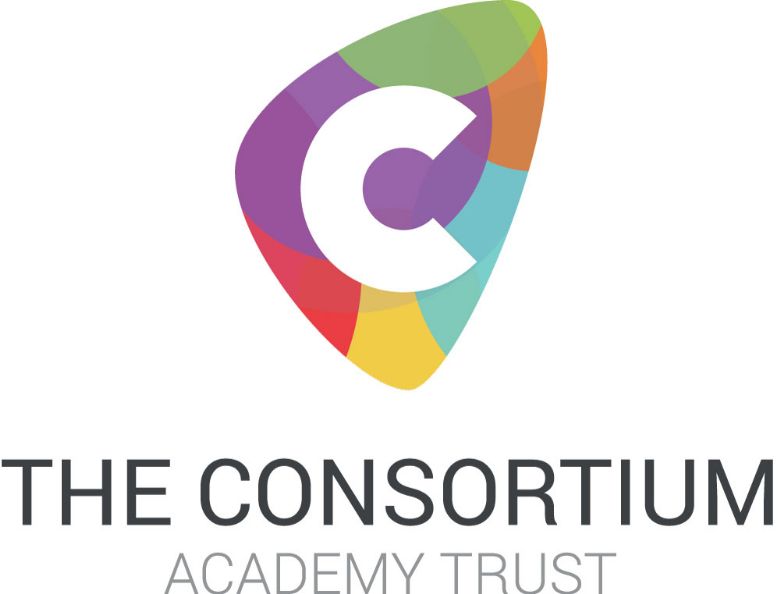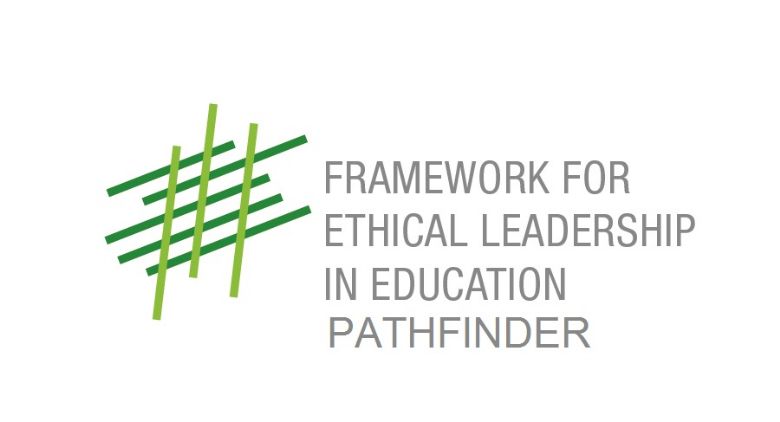Careers Education and Information
Believe. Achieve. Succeed
At Cottingham High School, Careers, Education, Information, Advice and Guidance (CEIAG) is a key component of our curriculum. We are committed to providing an engaging programme of activities, events, and opportunities that ensure our students are equipped to make well-informed decisions about their future education, employment, or training after leaving school.
Our CEIAG programme spans from Year 7 to Year 11, inspiring students to envision a career that aligns with their ambitions. Throughout this journey, they are encouraged to develop the knowledge, skills, and values needed to thrive in tomorrow’s job market. We focus on nurturing essential personal qualities such as resilience, perseverance, adaptability, pride and teamwork – values that will help them success in the ever-changing world of work.
At the heart of our programme are the values of Believe, Achieve, Succeed, which guide and motivate our students to reach their full potential. These core values inspire confidence, ambition, and determination, ensuring that our students are not only ready for the next stage of their career journey but are also empowered to excel in whatever they choose to pursue.
Aims and Objectives
Our CEIAG programme ensures that every pupil has access to valuable information about the career and labour market, helping them make informed decisions about their future. We link classroom learning to real-world careers, offering students a variety of encounters with employers, employees, and the workplace. These experiences help students explore potential career paths and gain insights into the skills and knowledge required in different industries.
Additionally, our programme includes opportunities for students to engage with further and higher education, providing them with a broader understanding of their options. Each pupil is also given the chance to receive personal guidance tailored to their career ambitions.
To measure the impact of our CEIAG programme, we conduct an annual pupil survey and analyse destinations data to evaluate the success of the activities and support provided. Feedback from pupils, staff, employers, and parents is also gathered.
We are a member of the Careers & Enterprise Company Hull & East Yorkshire Careers HUB and work closely with them to continually improve our careers education provision. We regularly review and update our CEIAG programme, considering the needs and views of our pupils, as well as guidance from the Government and local industry partners. These updates ensure out programme remains relevant and effective in preparing students for the opportunities ahead. A detailed overview of our CEIAG provision is available below.
The Careers Leader
Mrs Dimmack is responsible for the implementation of the schools Careers Programme. This includes careers lessons, employer engagement activities, the careers fair, face to face personal guidance interviews, Logon Moveon, apprenticeship information, work-related learning and career related visits.
Work experience contacts within school are Mrs Clucas Year 10 and Mrs Bell for Year 12.
You can find Mrs Dimmack in IT1 or you can contact her on 01482 847498 or email: dimmack.k@cottinghamhigh.net
What options are there for your child after Year 11?
What options are there for your child after Year 11?
- Full-time education
- Apprenticeships or traineeships
- Part-time training with a job, self-employment or voluntary work.
All young people must stay in some form of education or training until their 18th birthday.
Full-time education
You can choose from:
- A levels
- Vocational Qualifications
- T levels
There are both 1 year and 2 year options available.
There are both academic or job-related courses to suit ALL ability levels and your child can progress to the next level of each course wherever they start.
Your child can study for one of these at:
Sixth form
College
A training provider
A levels: subject-based qualifications that can lead to university, further study, training, or work. Students normally study three or more A levels over two years. They tend to be assessed by a series of examinations, which take place at the end of your second year. There are more than 40 different A-level subjects on offer – some will be subjects that you studied at GCSE and others may be new.
A-levels are highly valued by employers and universities so they can open up lots of doors to further study and careers. If your child is not sure what career or job they want to do, studying a selection of A levels can be a good way of keeping your options open. For certain careers specific A levels may be essential or desirable e.g. doctor, veterinary surgeon, architect, engineering, solicitor, teacher or computer scientist may specify certain subjects at A level in order to guarantee entry onto degree programmes at particular higher education institutions. They can be studied at college or at sixth forms.
What will your child need?
5 GCSEs at grade 4 – 9 (some may require a minimum of a grade 5 – or even higher for some subjects).
You can investigate careers and University entry requirements by using the following links:
Russell Group Informed Choices
BTECs: Specialist work-related qualifications. They combine practical learning with subject and theory content. Students study to gain skills and knowledge in their subject area, then put those skills into practice in real-life scenarios.
A BTEC at levels 1 and 2 are equivalent to GCSEs.
The BTEC level 3 equivalent is A-Level. You study a BTEC alongside A-levels, or you can do a standalone BTEC at college or sixth form.
BTECs are becoming a more popular path to both university and particular jobs in place of, or in addition to, A-levels.
What will your child need?
5 GCSEs at grade 4 - 9 to get on to a level 3 BTEC course.
CTECs: (Cambridge Technical Certificates) are equivalent to BTECs in almost every way except that they are released by a different exam board. BTECs are run by Pearson, whereas OCR opted to create their own version of the qualification called a CTEC, short for Cambridge Technicals. These are not as common as BTECs, but some schools and colleges find the information provided by OCR easier to understand and teach than Pearson.
What will your child need?
5 GCSEs at grade 4 - 9 to get on to a level 3 CTEC course.
UAL (University of the Arts London) - offers qualifications in Art and Design, Fashion Business and Retail, Creative Media Production and Technology, Music Performance and Production, and Performing and Production Arts. UAL qualifications are vocational qualifications designed with education and industry partners, to provide students with the latest knowledge and skills
T levels Started in September 2020, these follow GCSEs and will be equivalent to 3 A Levels. These 2-year courses have been developed in collaboration with employers and businesses so that the content meets the needs of industry and prepares students for work.
T Levels offer students a mixture of classroom learning and ‘on-the-job’ experience during an industry placement of at least 315 hours (approximately 45 days). They will provide the knowledge and experience needed to open the door into skilled employment, further study or a higher apprenticeship.
- 80% of learner time is spent in the classroom
- 20% is spent on a 45-day placement with an employer
What will your child need?
4 or 5 GCSEs at grade 4 – 9 (some may require a minimum of a grade 5)
Useful links
T Levels | The Next Level Qualification
Course Search - Courses and Apprenticeships
Apprenticeships and Traineeships Apprenticeships
Apprenticeships are an excellent way of gaining qualifications and workplace experience. Apprentices can earn as they learn, and gain practical skills from the workplace.
This option may be suitable if your child wants to:
- Start work
- Earn money
- Gain a job-related qualification
- They will also gain valuable employability skills.
There are different level apprenticeships:
- Intermediate (Level 2): Option for people with GCSE grade 4s or better in two or more subjects (or equivalent). Training providers may require applicants to sit an initial assessment of literacy and numeracy skills if GCSE grade 4s haven't already been achieved. Alongside the intermediate apprenticeship, apprentices will be expected to study for level 2 qualifications (GCSE, Functional or Key Skills) in English and/or maths. Usually take 12-18 months to complete.
- Advanced (level 3): Equivalent to completing 2 A-levels. Often following on from an intermediate apprenticeship, offer further training and qualifications, more money, and the chance to move on to both higher and degree apprenticeships. Average 1-4 years to complete.
- Higher (Level4-5) and Degree (Level 6-7) Apprenticeships: An alternative to university or employment for people aged 18 and over with level 3 (A Level or equivalent qualifications). Both types of apprenticeship will combine work with study, this could be work-based and/or academic or an industry specific professional qualification.
Useful Links:
Apprenticeship Search - Apprenticeships - LIVE Vacancies
Courses Available - Courses and Apprenticeships
Home / Institute for Apprenticeships and Technical Education
Traineeships:
These are designed to help young people aged 16 to 18, to find an apprenticeship or job but don’t yet have appropriate skills or experience.
Each one consists of a high-quality experience placement with an employer. The work preparation elements help with skills to actually find and secure the job. Maths and English are also available for those who have not yet achieved a GCSE grade 4 or equivalent. These programmes are flexible and typically last 2-6 months.
Useful links:
Traineeships - Humber Learning Consortium
Courses Available - Courses and Apprenticeships
Jobs with training:
Your child can also work or volunteer full-time after Year 11 but they must also study or train at the same time
What does this mean?
Your child must study a minimum of 280 tutor led learning hours a year
Or,
1 day a week over a year or evening.
How do we help?
You and your child will need to discuss their best options and we will also support by offering a range of support, advice and guidance so that they make an informed choice.
We will:
- Give your child the opportunity to apply for courses/apprenticeships using LogOn MoveOn
- Deliver sessions on CV and letter writing,
- Arrange for further education providers and apprenticeship providers to come into the school
- Organise a Post 16 Careers Fair
- Arrange college taster sessions and attendance at Apprenticeship events
- Offer 1-2-1 careers interviews with an independent careers advisor
- Many other events throughout the year (please see Careers Plan)
For further advice, please visit the section on ‘How can you support your child?’ below.
How can you support your child?
How can you support your child?
As a parent or carer, your support is invaluable when you child is making important decisions about their future. Encourage an open dialogue about their interests, skills, and ambitions. Offer guidance based on your own experiences, but also allow your child to express their won views and explore their passions. Attend careers events together, such as open days or careers fairs, to learn about options gain insights into the opportunities available.
Your child's career plans
Help your child understand that making decision about their future is a process, not a one-time choice. Discuss the different post-16 pathways available, such as further education, apprenticeships, and vocational training. Be mindful that your child may be uncertain, and that’s okay. Provide reassurance and make it clear that their career path may evolve over time as they gain more experience and knowledge.
Listen to your child and discuss their options
Listen carefully to your child’s thoughts and feelings about their future. It’s important they feel heard and supported as they navigate their options. Engage in conversations about their strengths, hobbies and subjects they enjoy. They can help both of you explore career possibilities that might align with their interests. Encourage them to research different career routes and discuss he pros and cons of each option in a calm, supportive environment.
Helping your child plan a career
Planning a career path involves looking at both long-term goals and the steps required to reach them. Help you child set realistic targets for their post-16 education and beyond. This might include deciding on which subjects or qualifications to pursue, finding work experience opportunities, or researching potential career pathways. Encourage them to seek out advice from teachers, careers advisors, and professionals to ensure they have all of the information needed to make informed decisions.
How you can help your child's future
Your involvement can significantly influence your child’s confidence in their future career choices. Support them in building skills that are valuable in the workplace, such as teamwork, resilience, and communication. Encourage them to get involved in extracurricular activities or volunteering, which can help them gain experience and develop transferable skills. Help them set a plan with clear steps to achieve their goals and provide ongoing encouragement as they work toward their future. Finally, let them know that, regardless of the choices they make, you believe in their potential to succeed.
Please click here to see the latest publication of Careermap for parents.
LogOn MoveOn: Logonmoveon
Each child has an account on LogOn MoveOn which is an independent and impartial platform to support and inspire young people in Hull and the East Riding to succeed on their education and training journey.
LogOn MoveOn can help students to:
- Search local courses and apprenticeships
- Send and track applications
- Log their skills
- Create a CV
- Find events
- Research options
Students can obtain their username and password from Mrs Dimmack if they don’t already know it.
Useful Links
Find an apprenticeship - GOV.UK
Parent and guardian guide to apprenticeships | Undergraduate, Apprenticeships | UCAS
LMI | Skills Hull and East Yorkshire
Careers advice - job profiles, information and resources | National Careers Service
Careerpilot : Plan your future work & study
icould - Career ideas and information for your future
How to search & apply through UCAS Progress
Local Post 16 Providers and Career Options: (Links)
East Riding College - Further & Higher Education
Study at Hull College | FE, HE & Apprenticeship Courses
RAF Recruitment | Find Your Role | Royal Air Force
St Mary's College | SM6 Sixth Form
Labour Market Information
What is labour market information
“LMI is good quality information about what is happening now, and is expected to happen in the future, in the global, regional and national job market”.
Why is LMI important?
LMI refers to data and insights about the employment sector, including the availability of jobs, skills demand, wages, employment trends, and industry growth. It provides valuable information on the current and future state of the job market, helping individuals make informed decisions about their career pathways.
LMI typically includes details such as:
- Job opportunities: Information on which industries or sectors are hiring, including the number of job vacancies and the types of roles available.
- Skills and Qualifications: Data on the skills and qualifications that employers are seeking, as well as the skills that are in demand or are expected to be in demand in the future.
- Wages and Salaries: Information on average salaries and pay scales across different sectors, roles, and locations.
- Employment Trends: Insights into the growth or decline of various industries, helping to predict future job opportunities.
- Training and Education Requirements: Guidance on what qualification or training are needed to pursue certain career paths.
Using LMI, students can make more informed decision about their future education, training, and career paths, aligning their choices with the realities of the job market.
Where can you find LMI?
- Official employment statistics agencies, for example the Office for National Statistics
- Local council, Local Enterprise Partnership and Chamber of Commer websites
- Watching the news on television, reading the news online, reading trade journals and local newspapers
- On websites which specialise in advertising jobs and careers
- Speaking to family and friends about what they do in their job or asking teachers or careers advisors
- Researching companies, professional institutes, academic institutions and sector skills councils online and following them on social media
- Taking part in work experience
- You might even find LMI when you’re walking around your local area, or you are out in the car by looking out for new businesses which are opening, Look at their website, find out what they do and find out what types of jobs they might create.
Useful LMI Links:
Hull and East Yorkshire Overview | Skills Hull and East Yorkshire




